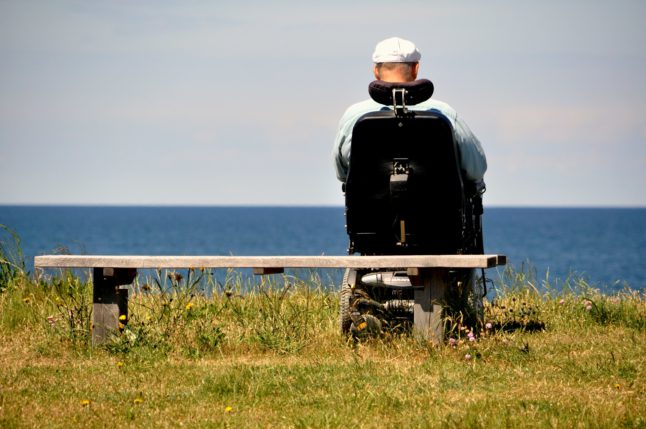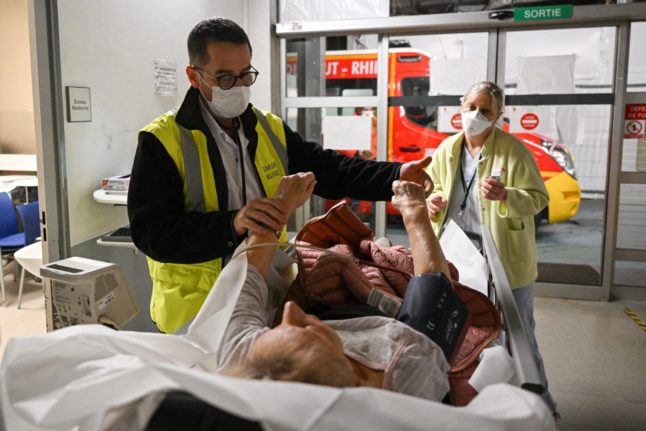What is Spain’s ELA law?
La ley de ELA (ELA law) was initially created for (and named after) people suffering with Amyotrophic Lateral Sclerosis – a degenerative illness that affects around 4000 Spaniards.
The law has seen several iterations in recent months and drafts have been presented by different parties with different alterations and amendments.
It was originally put forward by the centre-right opposition Partido Popular to modify 2006 legislation on Personal Autonomy and Care for dependent persons, and included a specific set of changes for patients diagnosed with ALS, with the underlying aim of speeding up diagnosis and increasing benefits for care.
Why is legislation needed?
In Spain, it is estimated that there are over 1 million people and families affected by a neurodegenerative disease. Due to the characteristics of these disorders and the changing (namely ageing) demographics of Spanish society, their prevalence is increasing. Many struggle to get the appropriate care they need in a timely manner.
The ELA law aims to speed up these processes and better coordinate care between health and social services.
READ ALSO: Older and more diverse: What Spain’s population will be like in 50 years
With regards to ELA specifically, it has long been felt that further legislation was necessary to improve the lives and care of ELA sufferers.
“It is absolutely necessary and humanely essential. We cannot allow people to choose to die every day for economic reasons, when what they really want is to live,” said the Spanish ALS Association in March when previous proposals were put forward.
Why is it back in the news?
Essentially because various parties have put forward drafts and the government coalition of PSOE-Sumar has now made its own proposal, expanding the law beyond ALS suffers to include other neurodegenerative disorders, such as:
- Alzheimer’s disease and other memory disorders.
- Ataxia.
- Huntington’s disease.
- Parkinson’s disease.
- Motor neurone disease.
- Multiple system atrophy.
- Progressive supranuclear palsy.
What does the government propose?
By expanding the scope of neurodegenerative disorders covered by the law, the Ministry of Social Rights wants to include the more than 1 million people in Spain who suffer from them, and to give them the benefits previously outlined for ALS sufferers.
In broad strokes, this means creating quicker responses so that people who have been diagnosed with neurodegenerative diseases and need care can be assessed and access, in the shortest possible time, the services and benefits available to them.
What will the law actually do?
According to a statement from La Moncloa, one of its main objectives is to “rationalise and reduce procedures as much as possible, to ensure that there is no significant time lag between the process of a disease and the response offered to sufferers by public administrations in all areas.”
The Health Ministry will also update the previous Approach to Amyotrophic Lateral Sclerosis, which dates back to 2017, to incorporate new goals and actions in the care of people with ALS.
Recommendations for the broader Neurodegenerative Diseases Strategy related to prevention, care and research will also be implemented.
It will include a review of the National Health System’s Portfolio of Services, within the Commission on Benefits, Assurance and Funding of the Inter-territorial Council of the National Health System, with regard to neuromuscular diseases, especially in the field of orthoprosthesis.
Coordination between health and social services will be improved, recognising the role of Spain’s regional health services in establishing the necessary coordination procedures so that patients can access multidisciplinary, continuous and “as individualised as possible.”
It will also introduce a benefit (bono social eléctrico) for family’s of neurodegenerative patients that are dependent on a machine connected to the grid.
When will it finally pass?
It’s unclear, despite the fact that most parties in the Spanish Congress are behind the legislation. The final bill should pass fairly easily, however, though it’s unclear when a final vote will actually be held.
Spain’s Minister for Social Rights, Consumer Affairs and Agenda 2030, Pablo Bustinduy, said this week he is “convinced” that it will be passed during this legislature, swearing that his department will do everything in its power “to achieve it” as soon as possible.



 Please whitelist us to continue reading.
Please whitelist us to continue reading.
Member comments